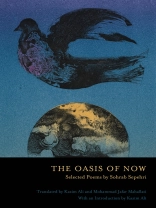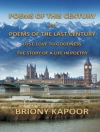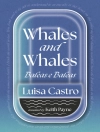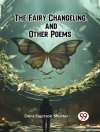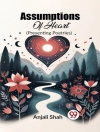Sohrab Sepehri (1928-1980) is one of the major Iranian poets of the 20th century. His verses are often-recited in public gatherings and lines from them were used as slogans by protesters in 2009. A painter, wood-worker, and poet, Sepehri wrote these poems after journeys through Japan, China, and India, where he was exposed to various cultural arts and spiritual disciplines.
สารบัญ
Table of Contents
Introduction …3
1/ Water’s Footfall
Water’s Footfall …7
2/ Dimension of Green
When Night Flooded Over …23
Light, Me, Flower, Water …25
And a Message on the Way …26
Bright Existence …28
Water …29
Golestaneh …31
Homesickness …33
The Fish Pass Along a Message …35
Address …36
Oasis of Now …37
Beyond the Seas …38
The Friend’s Pulsing Shadow …40
The Sound of an Encounter …42
Night Alone …43
The Surah of Observation …44
Murmuring Feathers/March 20th …46
Bright Leaf of Time …47
Sunlight …49
The Living Word …50
From Green to Green …51
Calling for You …52
To the Friend’s Garden …54
Friend: to Farrough Farrokhzaad …56
Always …58
As Far as the Pulse of Dawn …60
3/ The Traveler
The Traveler …63
Notes …80
Acknowledgments …82
เกี่ยวกับผู้แต่ง
Sohrab Sepehri: Sohrab Sepehri was born in 1928 on a journey between Kashan, his family’s home, and Qum. An acclaimed painter, Sepehri published numerous volumes during his lifetime and traveled widely throughout the world, including Europe, South Asia, the Middle East, China and Japan, the United States and South America. Many of his poems were influenced by his relationship with nature, and his studies of Eastern philosophy and visual arts and were often composed in a cadence similar to spoken language, considered a radical innovation at the time. Sepehri died in 1980 and in Iran is considered to be one of the most important poets of the twentieth century.
Kazim Ali: Kazim Ali was born in the UK to Muslim parents of South Asian and Middle Eastern descent. His books include four volumes of poetry, The Far Mosque, The Fortieth Day, the mixed genre Bright Felon: Autobiography and Cities and Sky Ward. He has also published two novels Quinn’s Passage and The Disappearance of Seth, two collections of essays, Orange Alert: Essays on Poetry, Art and the Architecture of Silence in the University of Michigan Press Poets on Poetry series and Fasting for Ramadan: Notes from a Spiritual Practice. He is the translator of a volume of poetry by Sohrab Sepehri and the novel L’Amour by Marguerite Duras. Recently he edited the essay collection Jean Valentine: This-World Company. In addition to being associate professor of Creative Writing and Comparative Literature at Oberlin College and founding editor of Nightboat Books, he teaches in the Stonecoast MFA program and is a certified Jivamukti Yoga instructor.
Mohammad Jafar Mahallati : Jafar Mahallati is Presidential Scholar in the Religion Department of Oberlin College. He served as Iran’s ambassador to the United Nations from 1987-1989 and was instrumental in brokering a peace agreement between Iran and Iraq. His scholarship focuses on cross-cultural concepts of friendship.
